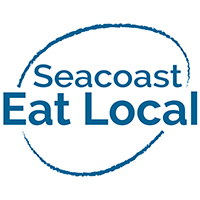 As the warmer weather hits and the snow starts to melt (hopefully), new varieties of fruits and vegetables are coming to the market. One product that has stayed constant throughout these seasons is: honey! Honey can be found throughout our farmers markets and New Hampshire. Honey is a staple food item for NH residents, and it is easy to understand why people love honey so much. Yet, our honey is in danger of disappearing.
As the warmer weather hits and the snow starts to melt (hopefully), new varieties of fruits and vegetables are coming to the market. One product that has stayed constant throughout these seasons is: honey! Honey can be found throughout our farmers markets and New Hampshire. Honey is a staple food item for NH residents, and it is easy to understand why people love honey so much. Yet, our honey is in danger of disappearing.
Bees are our only source of honey, yet their numbers are dropping not only in New Hampshire but across the country and world. Bees are natural pollinators and are a key component of agriculture production. The disappearance of these bees is critical as the USDA cites that about one in three mouthfuls of food we eat directly or indirectly benefits from honeybee pollination. This could mean no more apples, strawberries, cucumbers, pumpkins and MANY more fruits and vegetables. Not only would the disappearance of honey mean no more of these amazing products, it could potentially lead to an extreme increase in the price of foods. There are many factors that could be contributing to the decrease in bee population, and it is important that we do our part in prevent further numbers from dropping.
They are many ways in which we can help promote the population of bees, such as:
-
Planting a variety of native wild flowers to promote bee pollination
-
Become a beekeeper! There are many resources to help start your own hive
-
Stop using pesticides! Though many pesticides are not aimed at bees, they can do some damage
-
Buy local organic foods to promote growing more local varieties of food, which will then promote bee populations
-
Buy local raw honey, when people purchase more local honey it increases demand, and supply will surely follow
-
Call your local representative to push for a ban on chemicals that harm bee populations
Bees are an important part of our livelihoods and it would be detrimental if they were to go extinct. There are many more resources for people to get a better understanding on these organisms and see how we can help.
